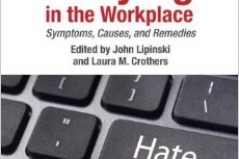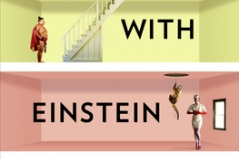From candidate genes to genome-wide association studies

keywords:
candidate gene / genomewide association study / nature / nurture
From candidate genes to genome-wide association studies
In my last post I asked where the genes for psychological traits are, and argued that over the last two decades candidate gene studies have failed to identify genes that are reliably associated with complex behavioral phenotypes. In this post, I will discuss more recent whole genome methods, such as genome-wide association studies, and what we have learned from these. / more
No strings attached: Are “friends with benefits” as complicated in real life as they are in the movies?
No strings attached: Are “friends with benefits” as complicated in real life as they are in the movies?
Many people become “friends with benefits” to avoid drama and to have sex without getting tied up in emotions; however, the reality is that having a friend with benefits often becomes complicated. Why is that, and is there anything you can do to avoid these complexities? In this article, we will explore the science behind friends who decide to have sex.
“No relationship. No emotions. Just ...
/ moreNow I ain’t sayin she’s a gold digger, but will she get with someone who makes less than her, either?
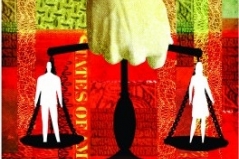
keywords:
romantic relationships / gender / gender-roles / wage gap
Now I ain’t sayin she’s a gold digger, but will she get with someone who makes less than her, either?
In this post I review research showing that women do not care about partner’s income as much as people may think. In fact, the research suggests that both men and women overestimate the degree to which the other gender cares about money in relationships. These findings are particularly relevant given that some opponents of the 2014 U.S. Paycheck Fairness Act have stated that women prefer to make less money than their romantic partners. / more
Bullying in the workplace
Bullying in the workplace
Organization-motivated aggression like retaliatory behavior and antisocial conduct designed to harass, ostracize, humiliate (verbally and non-verbally), and eliminate any employee who is perceived to have ethical standards or raises an ethical concern that might become a problem for management could be classified as a bullying behavior. Human resources departments are designed to protect management and can easily be drawn into becoming the “Bully” who is hiding behind his or her legal jargon in order to lynch and attack targeted employees. / more
Learning from our dreams

keywords:
relationships / dreams / friends / priming / conflict
Learning from our dreams
In this post, I describe how dreams are associated with people’s behavior after waking up, especially in the context of their close relationships. Have you ever felt upset at someone after what they did in your dream? There are several theories to explain how and why this happens, along with some references to Friends and The Matrix. / more
Moonwalking with Einstein: the art and science of remembering everything.
Moonwalking with Einstein: the art and science of remembering everything.
In an attempt to find “the world’s smartest person”, Foer ends up as a visitor at the USA Memory Championship whose contestants easily memorize 250 random digits in under five minutes and are able to learn the order of a shuffled card deck in less than two. However, when Foer asks some of the contestants about their “savant skills”, all of them point out that their memory is in fact “quite average” and that their superior performance is the product of “simple” memory training techniques – which can be learned by anyone. Fuelled by this, Foer starts his own Ebbinghausian self-experiment when he decides to become a “mental athlete” himself. Coached by one of the contestants, Foer begins to train his memory to take part in the oncoming USA Memory Championship. / more
Only searching for a plane? What the disappearance of Flight MH 370 reveals about the human need for meaning and certainty

keywords:
meaning / certainty / understanding / control
Only searching for a plane? What the disappearance of Flight MH 370 reveals about the human need for meaning and certainty
In this post, I describe how two core motives of human social behavior—the need for understanding and the need for control—shape people’s responses to disaster. Using the disappearance of Malaysian Airlines Flight 370 as an example, I describe how people seek to maintain meaning (related to understanding) and to re-establish certainty (related to control) after unforeseen disasters. / more
Coping with being bullied
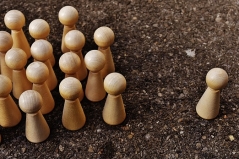
keywords:
bullying / Aggression / coping / interventions
Coping with being bullied
In this blog post, I discuss recent research suggesting that being the victim of bullying can have a long-lasting impact on mental and physical health. But there’s a ray of hope in this literature as well: the lasting impact may depend on the ways that victims cope with being bullied. / more
Political ideology is more than just “liberal” and “conservative”
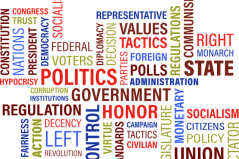
keywords:
political psychology / ideology / need for cognitive closure / policy attitudes / prejudice / discrimination
Political ideology is more than just “liberal” and “conservative”
In this blog post, I describe new evidence that thinking about political ideology on a single liberal/left to conservative/right spectrum masks important nuances in the origins of political ideologies and in the way that people apply those ideologies to important judgments, including those of other people (i.e., prejudice). / more
Would One Direction be as popular if we got to re-run the world?
keywords:
social influence / Cultural Markets / Cumulative Advantage
Would One Direction be as popular if we got to re-run the world?
In this post I ask why do songs, movies and books become popular? If you love something, it is easy to think it must be its obvious qualities, but if you work in promotion, you know that these qualities are not easy to spot. Usually, we look to our peers to discover new things – what Psychologists call social proof. The work I present shows how important social proof is in determining what becomes popular, but also that appeal, to some degree, matters. / more


